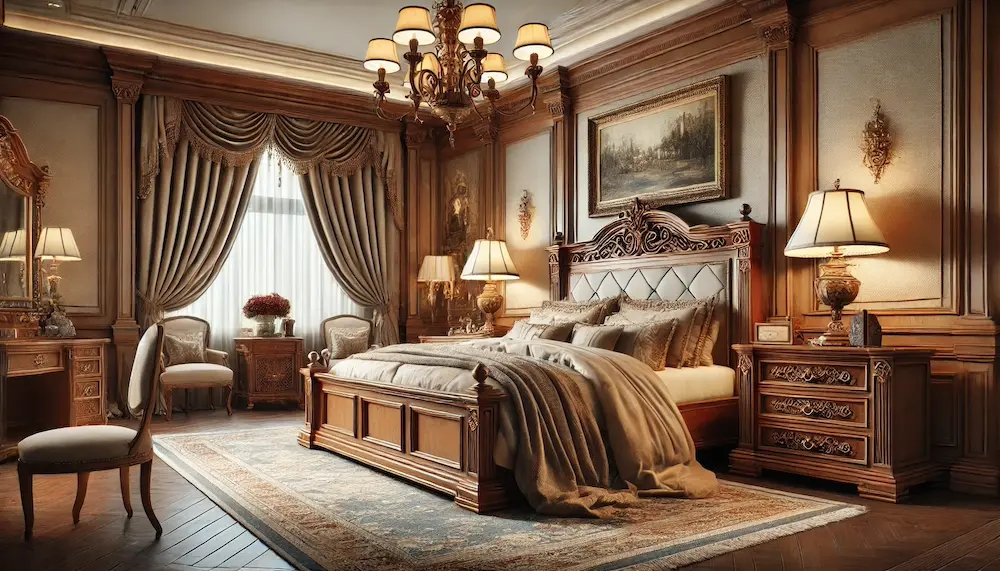A traditional bedroom exudes timeless elegance, drawing inspiration from classic European decor to create a harmonious and inviting space.
History and Origins of Traditional Design
Traditional interior design has its roots in 18th and 19th-century European decor, particularly British, French, and Neoclassical styles. This design approach emphasizes symmetry, rich furnishings, and a cohesive color palette, aiming to create a serene and orderly environment. Over time, traditional design has evolved to incorporate modern elements while maintaining its classic foundation.
Key Features of a Traditional Bedroom
- Symmetry and Balance: Furniture and decor are arranged to create a balanced and harmonious layout, often with matching bedside tables and lamps flanking the bed.
- Classic Furniture Pieces: Incorporating furniture with ornate detailing, such as carved wood headboards, upholstered chairs, and antique dressers, adds a sense of history and refinement.
- Rich Color Palette: Utilizing deep, muted colors like burgundy, navy, and forest green, complemented by neutral tones, contributes to a warm and inviting atmosphere.
- Luxurious Textiles: Incorporating high-quality fabrics such as silk, velvet, and brocade for bedding, curtains, and upholstery enhances the room’s opulence.
- Ornate Details and Accessories: Adding decorative elements like crown molding, chandeliers, and framed artwork contributes to the room’s classic aesthetic.
Applications of Traditional Bedroom Design
Traditional design can be adapted to various bedroom settings:
- Historic Homes: Restoring or maintaining traditional design elements can preserve the home’s original charm and character.
- Modern Residences: Incorporating traditional elements can add a touch of elegance and timelessness to contemporary spaces.
- Luxury Hotels: Traditional design in hotel bedrooms offers guests a sense of comfort and sophistication.
Considerations When Designing a Traditional Bedroom
- Cohesion: Ensure that furniture, colors, and accessories complement each other to create a unified look.
- Quality Materials: Investing in high-quality materials and craftsmanship enhances the room’s longevity and appeal.
- Personal Touches: Incorporate personal items or heirlooms to add individuality to the space while maintaining the traditional aesthetic.
- Modern Comforts: While adhering to traditional design principles, include modern amenities to ensure comfort and functionality.
Conclusion
A traditional bedroom combines classic design elements to create a space that is both elegant and inviting. By focusing on symmetry, quality furnishings, and a cohesive color palette, you can design a bedroom that stands the test of time, offering comfort and sophistication.
